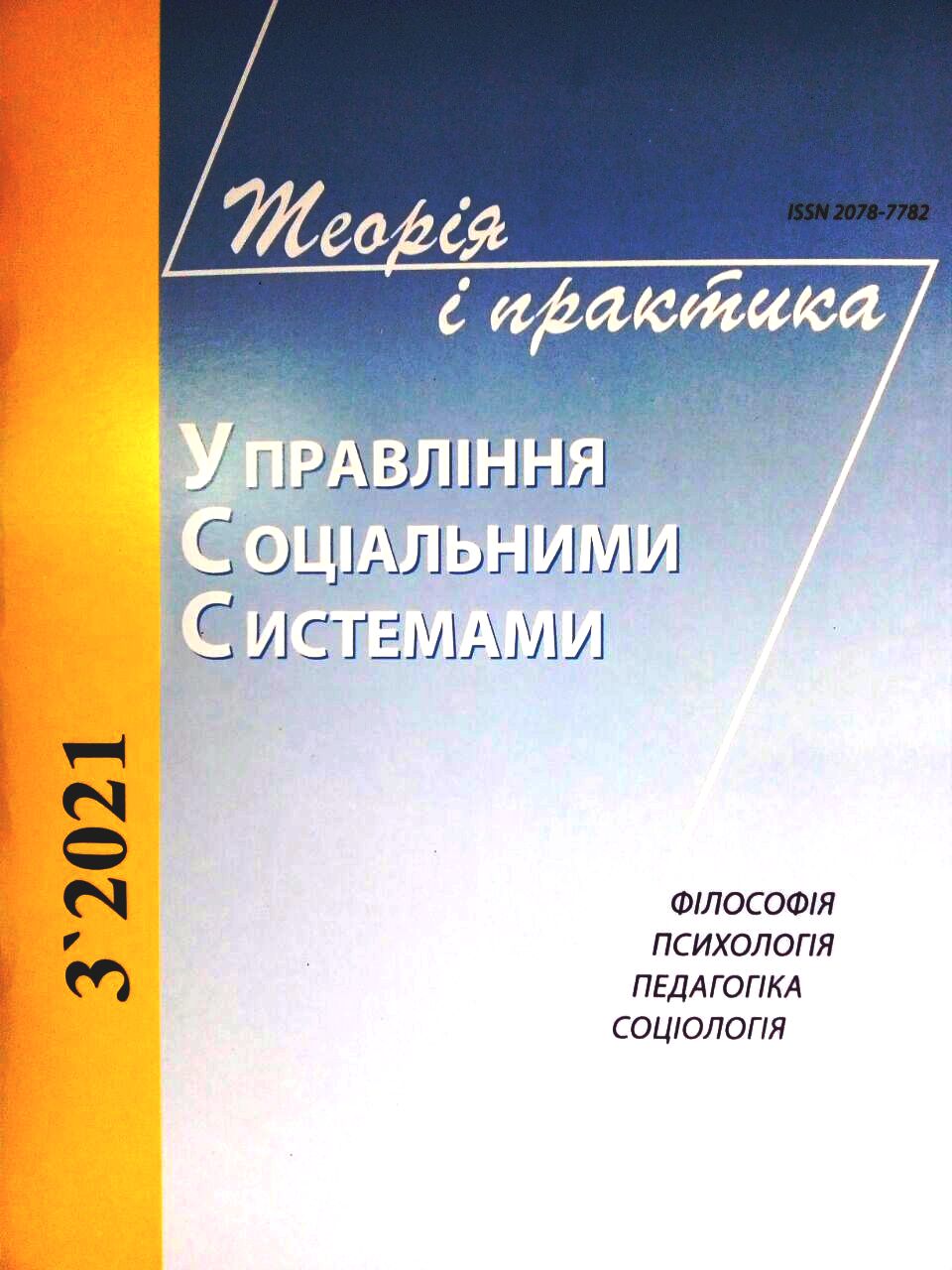ЕЛЕМЕНТИ ІНТЕРАКТИВНИХ ТЕХНОЛОГІЙ У ВИКЛАДАННІ ДИСЦИПЛІН МАТЕМАТИЧНОГО СПРЯМУВАННЯ
DOI:
https://doi.org/10.20998/2078-7782.2021.3.07Ключові слова:
дисципліни математичного спрямування, онлайн-навчання, STEM-освіти, хмарна платформа Zoom, віртуальне навчальне середовище Moodle, технології “перевернутого” навчання, гейміфікація.Анотація
Розглянуто можливості, які надає застосування інтерактивних технологій під час викладання дисциплін математичного спрямування, що є обов’язковими в процесі підготовки майбутніх фахівців з економіки та менеджменту. Наведено приклади позитивного впливу використання технології “перевернутого” класу на сприйняття нового матеріалу в умовах онлайн-навчання, а також елементів гейміфікації – на формування у студентів компетентностей щодо можливостей використання математичного апарату у майбутній професійній діяльності.
Посилання
1. Afanas’iev, M. V.,Poliakova, H. A., Romanova, N. F. and other (2018) “Training in a higher education institution”, For general. ed. professor M. V. Afanas’ieva, Kharkiv: S. Kuznets KNUE, p. 323
2. All-Ukrainian Forum “Ukraine 30. Education and Science”, available at: https://ukraine30.com/education_science/ (Last accessed: 29.08.2021)
3. Gurevych, R. S., Kademiya, M. Yu. (2016) “Smart-education a new paradigm of modern education system”, Theory and practice of social systems management, no 4, pp. 71–78
4. Zhaldak, M. I. (2003). “Pedagogical potential of computer-oriented mathematics teaching systems”, Scientific journal of NPU named after MP Drahomanov, series 2, Computer trainingsystems, pp. 3–16
5. Cabinet of Ministers of Ukraine. Order of June 12, 2019 № 419-r. “About approval of the Concept of realization of the state policy in the field of professional (vocational) education”, Modern professsional (vocational) education" for the period till 2027”, available at: https://zakon.rada.gov.ua/laws/show/419-2019-%D1%80#Text(Last accessed: 19.08.2021)
6. Cabinet of Ministers of Ukraine. Order of August 5, 2020 № 960-r. “About approval of the Concept of development of natural and mathematical education (STEMeducation)”, available at: https://www.kmu.gov.ua/npas/pro-shvalennya-koncepciyirozvitku-a960r (Last accessed: 19.08.2021)
7. Koval, T. I. (2009), “Training of higher school teachers: information technologies in pedagogical activity”, Kyiv: Vyd. tsentr NLU, p.380
8. Lebedeva, I. L., Norik, L. O. (2020),“The effectiveness of e learning students inquarantine on the example of the disciplines of the mathematical cycle”, Physical & mathematical education, issue 3 (25), part 2, pp. 93–100
9. Marienko, M. V., Borysiuk I. Yu. (2020), “Gamification of the educational process during the study of disciplines of the natural and mathematical cycle by pupils of IGSE”, Physical & mathematical education, issue 4(26), pp.72–78
10. Morze, N. V., Hlazunova, O. H. (2008), “Models of effective use of information and communication and distance learning technologies in higher education”, Information Technologies and Learning tools. 6(2), available at: https://journal.iitta.gov.ua/index.php/itlt/article/view/138/124 (Last accessed: 29.08.2021)
11. Perminova, S. O. (2021), “Creating of EdTech startups as a factor in the development of online education”. Efficient economy, no 3, available at: http://www.economy.nayka.com.ua/pdf/3_2021/84.pdf (Last accessed: 19.08.2021)
12. Pometun, O. I., Pyrozhenko, l. V. (2004), “A modern lesson. Interactive learning technologies”, for ed. O. I. Pometun, Kyiv: Vydavnytstvo A.C.K, p.192
13. Semerikov, S. O., Slovak, K. I. (2011), “Theory and methods of application of mobile mathematical environments in the process of teaching higher mathematics to students of economic specialties”, Information Technologies and Learning Tools, no 1 (21), available at: https://www.journal.iitta.gov.ua/index.php/itlt/article/view/413/369 (Last accessed: 29.08.2021)
14. “Strategy for the development of higher education in Ukraine for 2021–2031”, (2020), Kyiv: МES, p. 71
15. Tihomirov, V. P. (2011) “The world on the way to Smart Education: new opportunities for development”, Open education, no 3. pp. 22–28
16. “Sustainable development goals: Ukraine. National report 2017”, available at: https://me.gov.ua/Documents/List?lang=ukUA&id=938d9df1-5e8d-48cc-a007be5bc60123b8&tag=TSiliStalogoRozvitku (Last accessed: 29.08.2021)
17. Shainer, H. I., Havran, M. I. (2019), “Information and communication technologies of foreign language teaching in higher educational institutions of Ukraine”, Innovative pedagogy, v.3. issue,10, pp128–133
18. Ayhan, B. (2017), “Digitalization and society”, Frankfurt am Main: Internationaler Verlag der Wissenschaften, p. 210
19. Bazil, L. (2012), “Business Games for Management and Economics: Learning by Playing”, World Scientific Publishing Company, p. 412
20. Drucker, P. F. (1993) “Postcapitalist society”, New York: Harper business, p. 232
21. “E-learning market: global industry trends, share, size, growth, opportunity and forecast 2020-202”, available at: https://dna325.com/blog/e-learningmarket-global-industry -trends-share-sizegrowth-opportunity-and-forecast-2020-2021/ (Last accessed: 19.08.2021)
22. “36 Edtech companies changing the way we learn”, available at: https://builtin.com/edtech/edtech-companies (Last accessed:19.08.2021)
23. “Education Technology: What Is EdTech? A Guide”, available at: https://builtin.com/edtech (Last accessed: 19.08.2021)
24. “Europass Teacher Academy: Flipped Classroom”, available at: https://www.teacheracademy.eu/course/flipped-classroom/ (Last accessed: 19.08.2021)
25. “Is EdTech shaping the future of education and learning?”, available at: https://thescalers.com/is-edtech-shaping-the-futureof-education-and-learning/ (Last accessed: 19.08.2021)
26. Schwab, K. “The Fourth Industrial Revolution: what it means, how to respond”, available at: https://www.weforum.org/agenda/2016/01/the-fourth-industrial-revolutionwhat-it-means-and-how-to-respond/ (Last accessed: 19.08.2021)
27. “Top 6 Online Learning Platforms in the World”, available at: https://colorwhistle.com/top-online-learning-platforms/ (Last accessed: 19.08.2021)
28. Tryus, Yu., Kachala, Т. (2013), “Innovation education technologies in training of 104IT professionals in the Technical Universities in Ukraine” ICCER, pp. 614–621
29. “United Nations Millennium Declaration. General Assembly resolution 55/2 of 8 September 2000”, available at: https://www.ohchr.org/EN/ProfessionalInterest/Pages/Millennium.aspx (Last accessed: 19.08.2021)
30. Werbach, K., Hunter, D. (2020), “For the Win, Revised and Updated Edition: The Power of Gamification and Game Thinking in Business, Education, Government, and Social Impact”, Pennsylvania: Wharton School Press, p. 152
31. “World Economic Forum. Insight report: The global competitiveness report 2019”, available at: http://www3.weforum.org/docs/WEF_TheGlobalCompetitivenessReport2019.pdf (Last accessed: 19.08.2021)

##submission.downloads##
Опубліковано
Номер
Розділ
Ліцензія
Авторське право (c) 2021 Ірина Лебедєва, Лариса Норік, Степан Лебедєв

Ця робота ліцензується відповідно до Creative Commons Attribution-NonCommercial-NoDerivatives 4.0 International License.
Автори, які публікуються у цьому журналі, погоджуються з наступними умовами:- Автори залишають за собою право на авторство своєї роботи та передають журналу право першої публікації цієї роботи на умовах ліцензії Creative Commons Attribution License, котра дозволяє іншим особам вільно розповсюджувати опубліковану роботу з обов'язковим посиланням на авторів оригінальної роботи та першу публікацію роботи у цьому журналі.Автори, які публікуються у цьому журналі, погоджуються з наступними умовами:
